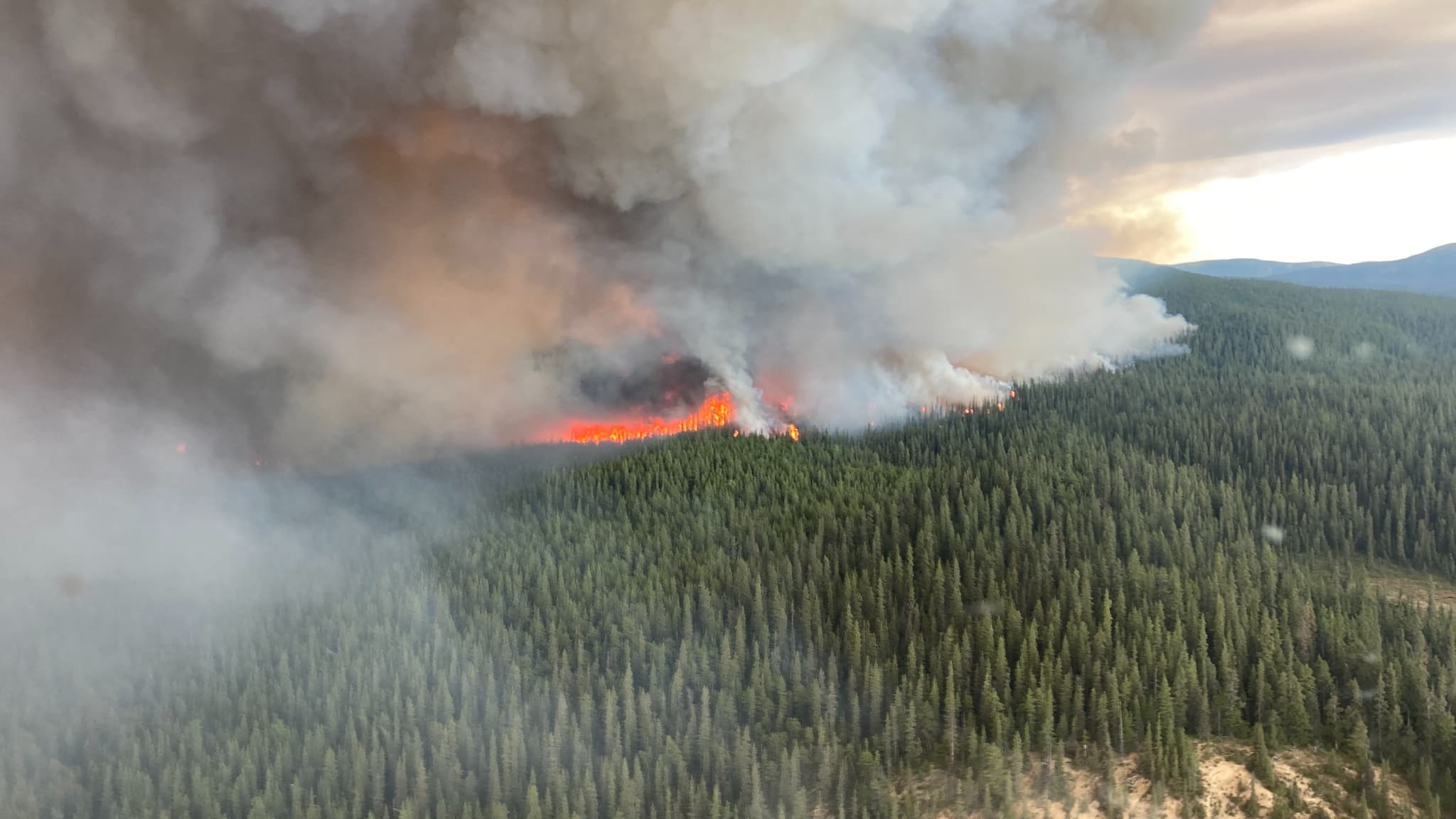Canada is facing massive wildfires, with more than 900 active fires, of which more than 570 are out of control. A firefighter died in the field in British Columbia and federal police and the provincial Occupational Safety and Health Administration launched an investigation.
A firefighter from Western Canada died this Thursday in the field while responding to one of the major fires that have been ravaging the country for weeks, her union announced on Thursday night.
This is the first firefighter death since this historic fire season began in Canada. There are currently more than 900 active fires, with more than 570 burning out of control.
The 19-year-old firefighter was found “trapped under a fallen tree” by her team while clearing bushes in a remote area where a small fire had broken out, federal police said in a news release. She was then flown to hospital, where she succumbed to her injuries.
“It is with a heavy heart that our union mourns the loss of a member of our family who lost his life fighting a forest fire outside Revelstoke today,” said the BCGEU union in British Columbia.
An open investigation
The firefighter “was injured while fighting a forest fire,” the British Columbia Fire Service (BCWS) said in an email, without providing further details. The last firefighter to die on the ground in the province was in 2020.
Federal police and the provincial Occupational Safety and Health Administration launched an investigation.
Prime Minister Justin Trudeau recalled that the situation remained “extremely serious,” deplored this “heartbreaking” news and stressed that “we must never forget the risks these heroes take every time they face danger.”
The number of fires continues to increase in the country, especially in the west, where several hundred fires have been recorded in just a few days, mainly caused by storms.
“A very dangerous job”
British Columbia, which recently ordered new evacuations, called for the help of 1,000 additional international firefighters.
But “it’s very difficult to get additional firefighting capacity,” provincial fire department spokesman Cliff Chapman said Thursday.
“It’s a very dangerous job. “The conditions we are in make it even more dangerous for our employees who are working 14, 16, 20 hours a day and doing everything they can to keep these fires out of strategic areas,” he said.
And the situation will not improve as “hot and dry weather is expected in the coming months,” Sarah Budd of the BCWS told AFP: “We don’t expect any relief from the weather.”
With 9.7 million hectares already up in smoke across the country – eleven times the average for the last decade – the absolute annual record set in 1989 has already been far exceeded.
The east and west of the country are affected at the same time, and certain provinces where there are no fires are also affected. One of the wildfires in northern Quebec alone devastated more than a million hectares.
Canada, which is warming faster than the rest of the planet due to its geographic location, has faced extreme weather events in recent years, the intensity and frequency of which have increased due to climate change.
Top article

Total web buff. Student. Tv enthusiast. Evil thinker. Travelaholic. Proud bacon guru.







